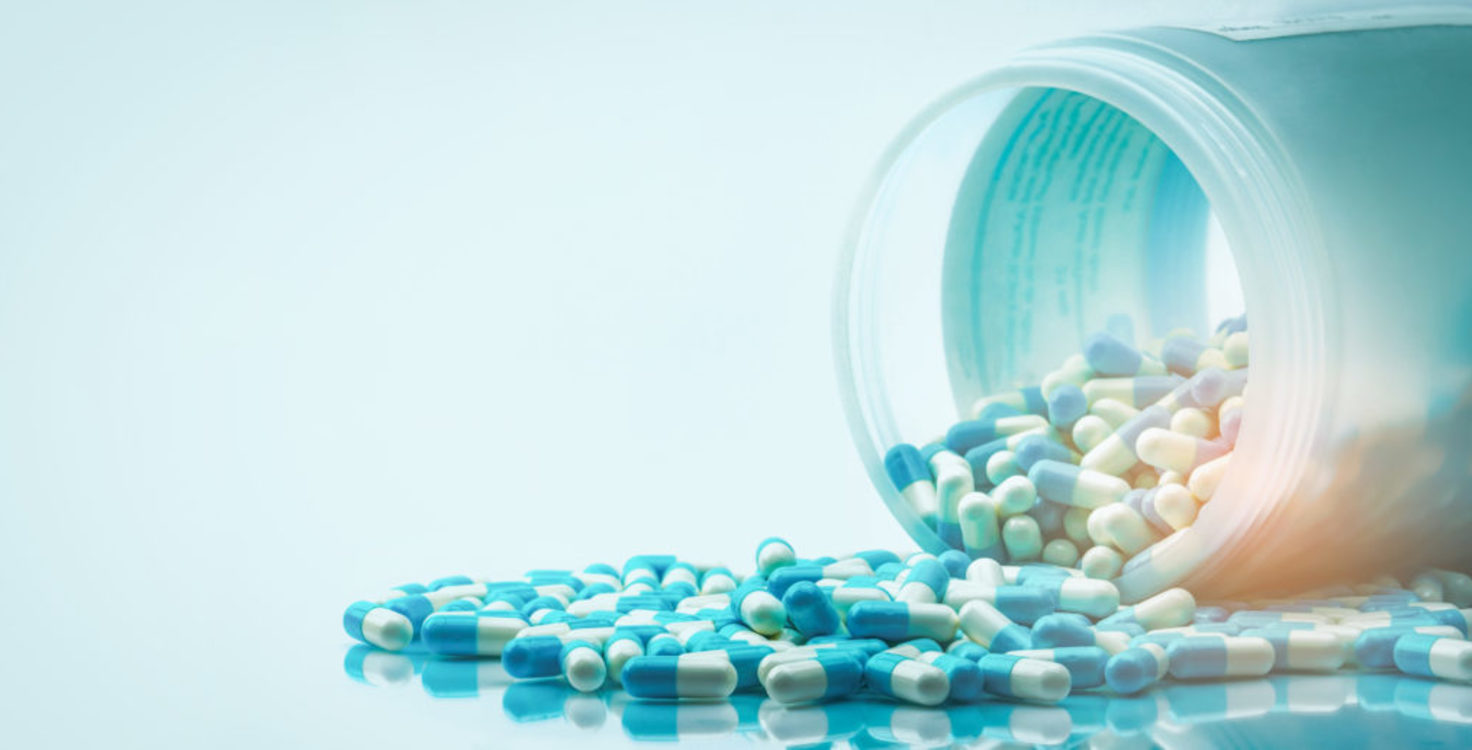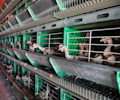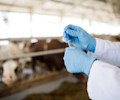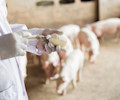Antimicrobial resistance (AMR) already causes 700,000 deaths each year. COVID-19 is intensifying the threat. Emerging evidence from around the world suggests that antibiotics are being used to treat the majority of COVID-19 cases – potentially accelerating rates of AMR.
Announced today: 12 global investors with over $7 trillion AUM combined are the first to join Investor Action on AMR. Amundi, Legal & General Investment Management and Northern Trust Asset Management are among those pledging to address the threat of AMR and help build back better from COVID-19.
The Investor Action on AMR initiative calls investors to promote sustainability – across human, animal and environmental health.
Professor Dame Sally Davies, UK Special Envoy on AMR, joins coalition in calling for investors to support biotech companies developing novel antibiotics and to take a much stronger grip on antibiotic stewardship in line with global best practices on AMR. Countries around the world are making progress on AMR but investors should be part of the solution too.
(London, 23rd November 2020). As World Antimicrobial Awareness Week begins, 12 global investors and financial institutions have announced they are joining the Investor Action on AMR initiative, which works to galvanise investor efforts to address global antimicrobial resistance. The coalition is backed by the UN-Supported Principles for Responsible Investment (PRI), the Access to Medicine Foundation, the FAIRR Initiative and the UK Department of Health and Social Care.
The 12 investors in the coalition (see full list in Notes to Editor) include Aviva Investors (UK), Amundi (France), BMO Global Asset Management (Canada), CDC Group (UK), Nordea Asset Management (Sweden), Legal and General Investment Management (UK) Northern Trust Asset Management (US), and Sumitomo Mitsui Trust Asset Management (Japan). Together, the 12 investors manage over $7 trillion worth of assets and include some of the largest asset managers and institutions globally.
As part of the action, investors and investor representatives will be actively engaging their portfolio companies across the food and pharmaceutical sectors. Actions include:
Nordea Asset Management will engage companies in the pharmaceutical industry on water pollution in India, a key driver of AMR.
Legal & General Investment Management, in addition to taking a ‘One Health’ approach when considering the impacts of AMR, has committed to publishing a briefing exploring the materiality of antimicrobial resistance and its multifaceted impact on human welfare and animal health.
International business of Federated Hermes and EOS at Federated Hermes plan to publish an animal health thematic report in collaboration with FAIRR in early 2021 and to hold an online global event to help raise awareness of the key findings and actionable conclusions from the report.
BMO Global Asset Management will continue to engage with pharma and animal health companies, protein producers and restaurant chains on AMR topics including R&D, waste management and stewardship. BMO GAM is further raising awareness through a range of activities including a podcast and thought piece highlighting the challenges faced in addressing AMR.
Interfaith Center on Corporate Responsibility (ICCR) will continue to engage with companies throughout the food supply chain on the non-therapeutic use of antibiotics in animal agriculture via direct dialogue, shareholder proposals and multi-stakeholder convenings.
CDC Group has taken on a challenge to amplify the importance of AMR to other Development Finance Institutions and investors, and companies in emerging markets. They are doing this by sharing general guidance as well as specific sectoral entry points through CDC’s ESG Toolkit, a publicly available website.
Aviva Investors will raise awareness on AMR as a market failure and engage with policymakers on AMR funding and regulation to correct this, as well as continuing to highlight its materiality on investments.
Amundi will raise awareness of AMR’s materiality by engaging with specific investor stakeholders, such as ESG data providers, investor networks and equity brokers in order for them to develop key performance indicators better targeting AMR and to focus their ESG Research and thematic conferences on this issue.
All commitments are listed on the Investor Action on AMR website.
The 12 partners have committed to assessing and integrating risks, opportunities and impacts related to antimicrobial resistance when making investment decisions and engaging with investee companies. They pledge to take a ‘One Health’ approach when considering the impacts of AMR. This requires a holistic and multi-sectoral approach that recognises the interconnection between humans, animals and the environment. This will contribute to a more sustainable future for the planet, whilst reducing long-term risks for investors.
The Scale of the AMR Threat
Drug-resistant infections are an urgent public health challenge responsible for at least 700,000 deaths globally each year and set to rise to 10 million a year by 2050, potentially costing the world $100 trillion in global economic losses.[1] Increased use of antibiotics accelerates levels of resistance.
Evidence is emerging that the threat of AMR is being exacerbated by the COVID-19 pandemic – studies highlight that areas around the world are using antibiotics on almost all the COVID-19 patients who are put on ventilators, leading to what the Head of the WHO has called ‘disturbing’ rates of antimicrobial resistance this year. Human resistance to antibiotics could bring the end of modern medicine as we know it. Modern medicine, from caesarean sections to chemotherapy, are made possible because of the antibiotics that prevent and treat infections. Access to safe and effective treatments is essential to achieve universal health coverage – one of the key indicators of the United Nations’ Sustainable Development Goals.
The Role of Agriculture and Pharma Companies
Tackling the emergence of antibiotic resistance requires action by multiple industries. Around the world, pork, poultry and livestock farmers routinely feed antibiotics to healthy animals, putting the long-term efficacy of these vital drugs at risk. The recently released Coller FAIRR Protein Producer Index found that of 60 of the world’s largest meat, fish and dairy companies, 70% have extremely poor levels of antibiotic stewardship, posing a potential threat and contributing to the growth of antimicrobial resistance.
The overuse and misuse of antibiotics in humans is also a key driver of AMR, and pharmaceutical companies have a central role in minimising these risks. In 2020, the Antimicrobial Resistance Benchmark found that, since 2018, only a handful more clinical-stage antibiotics are supported by plans to ensure they are available and accessible soon after launch. Out of 30 companies assessed, ten companies are moving to discourage the overselling of their antibiotics and antifungal medicines to healthcare professionals by decoupling bonuses from sales volume or not using sales staff.
The Scope of the Initiative
The Investor Action on AMR initiative encourages and invites new investor partners to join. Participating investors and other financial institutions commit to:
Adopt an AMR lens when making relevant investments decisions and engaging with investee companies, either bilaterally or as part of collaborative engagements, and
Undertake at least one specific outcome (a ‘’challenge’’) to help combat the growing threat of drug-resistant superbugs in humans, animals and the environment.
Examples of investor challenges include research into the materiality of antimicrobial resistance on long-term financial returns, advocating for governments from across the world to take action to address market failures and to create incentives for antibiotics development and responsible manufacturing, and the development of guidance on the adoption of an AMR lens across different asset classes.
Last year, the United Nations’ Inter-Agency Coordination Group on AMR called for unprecedented co-operation across sectors and countries. As a co-convenor of this UN Group, Dame Sally Davies highlighted the role of investors in the global response to AMR. As a crucial element of the global social, economic development and financing agenda, AMR can benefit investments – and investors can also strengthen efforts to tackle AMR.
Professor Dame Sally Davies, UK Special Envoy on AMR and former Chief Medical Officer for England said:
“AMR already has the potential to be devastating in years to come, unless we urgently collaborate to act against it. From finance to the food sector, healthcare professionals to the public, we need to work together to build back better and prepare for the future. AMR matters to us all and investors are key in advancing the global response. I congratulate the investors who have committed to action and call on others to invest sustainably for our future.”
Jeremy Coller, Founder of the FAIRR Initiative and CIO Chairman of Coller Capital, said:
“The number one user of antibiotics worldwide is animal agriculture. This must change as most of these antibiotics are used on healthy animals for two reasons. To prevent the spread of infection in factory farms and secondly to fatten dramatically. As AMR grows, it threatens to turn back the clock for mortality rates by one hundred years, making us unable to treat easily-controllable diseases like sepsis or undertake the majority of surgeries. This is crazily irresponsible behaviour.”
Fiona Reynolds, CEO, PRI said:
“COVID-19 has brought into sharp focus the social and environmental challenges we face and has reinforced the fact that a healthy economy simply isn’t possible without healthy people and a healthy planet at its heart. Like the pandemic, AMR presents a plethora of ESG as well as macroeconomic issues with the potential to cost the global economy more than a trillion dollars by 2050. Investors have a critical role to play alongside businesses, governments and civil society in addressing AMR and we welcome the leadership of the 12 investors and financial institutions who have joined the Investor Action on AMR initiative so far.”
Jayasree Iyer, Executive Director of the Access to Medicine Foundation, said:
“We welcome several long-term signatory investors to the Access to Medicine Index as Investor Partners to the new Investor Action on AMR initiative. Investor Partners have set the standard for what leadership looks like from the financial community in the fight to stop superbugs. We look forward to supporting our Partners as they work to address AMR, and to welcoming new investors and financial institutions in the coming months”.
Notes to editor:
For more information, please contact:<br />Elliot Frankal, ESG Communications<br />T: +44 7989 524780 | e: elliot@esgcomms.com
Anna Massey, Access to Medicine Foundation<br />T: +31 (0)20 215 3535 |e :amassey@accesstomedicinefoundation.org
Investor, and investor representatives, participating in ‘Investor Action on AMR’ / Antibiotics Awareness Week:
Company
HQ Country
AUM
Amundi
France
$1.95 trillion
Aviva Investors
UK
$438 billion
BMO Global Asset Management
Canada
$260 billion
CDC Group
UK
$5.72 billion
International business of Federated Hermes
USA
$614 billion
EOS at Federated Hermes, on behalf of stewardship clients
USA
–
Genesis Investment Management
UK
$21 billion
Interfaith Center on Corporate Responsibility (ICCR)
USA
$400 billion
Legal and General Investment Management (LGIM Holdings)
UK
$1.5 trillion
Nordea Asset Management
Sweden
$246 billion
Northern Trust Asset Management
USA
$1.3 trillion
Sumitomo Mitsui Trust Asset Management
Japan
$650 billion
[1] The Review on Antimicrobial Resistance, Chaired by Jim O’Neill, December 2014











